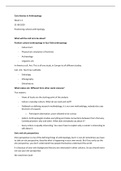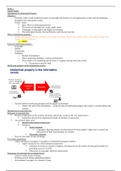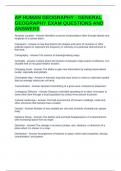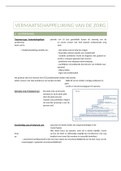College aantekeningen
ALL lecture notes Core Themes in Anthropology
These are all the lecture notes, including text on slides, from CTA 2020/2021 by F. Columbijn. I've paraphrased everything he said and added the text on slides later, nothing is missing!
[Meer zien]











